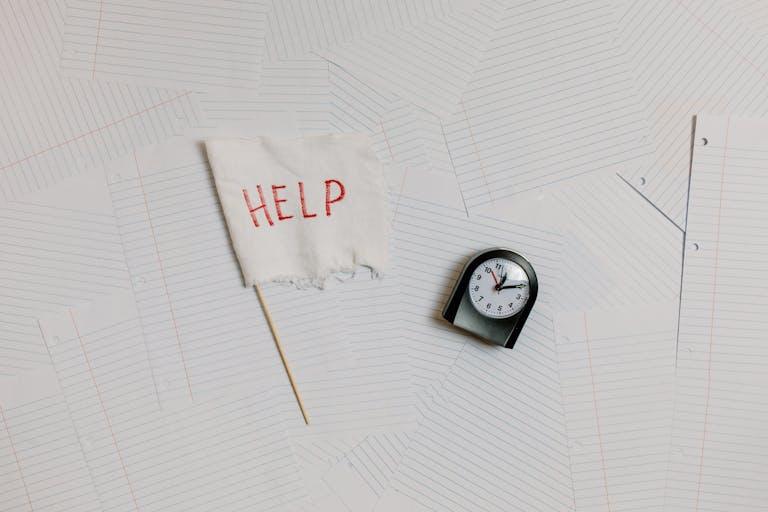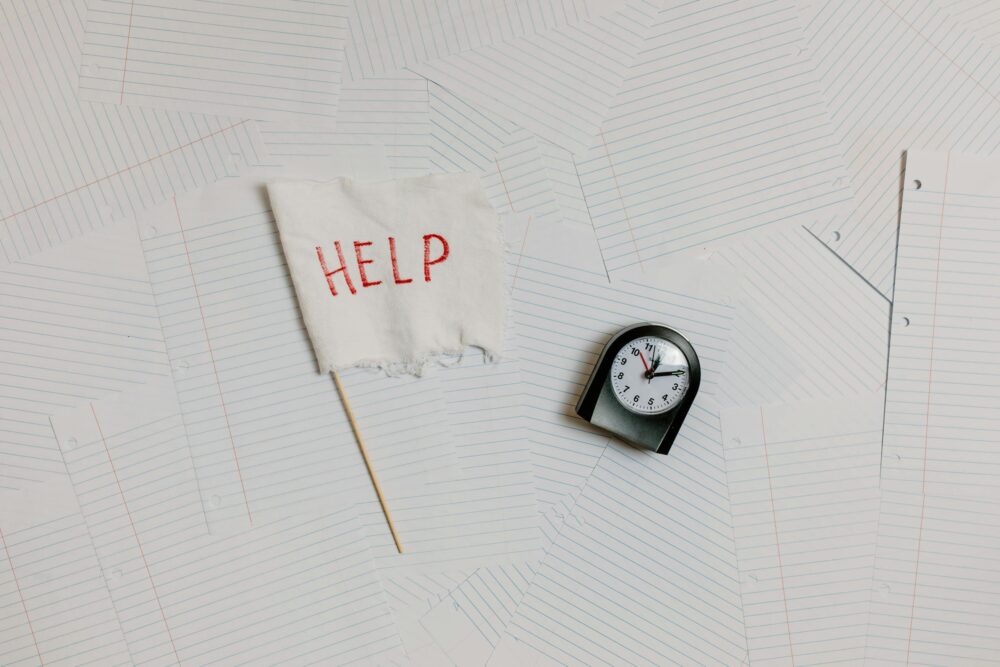When Work Anxiety Turns Into Burnout: How to Recognize the Signs and Find Your Way Back
Burnout doesn’t arrive all at once. It builds slowly, hidden under deadlines, long hours, and the pressure to “just keep going.” For many professionals in Ontario, it starts as work anxiety in the form of racing thoughts, restlessness, or the constant sense that you’re not doing enough.
Left unchecked, that anxiety can grow into full burnout: a hollow sense of meaninglessness, or even the feeling that you need to walk away from your job entirely. You’ve probably been feeling the guilt of letting down your team, and wondering if you should stay or go. I know, you have friends at work and feel bad to leave them doing your work. It’s hard.
If you’re wondering whether your stress is normal, or whether you’re sliding into something more serious, this guide will help you recognize the signs that you might need to take a break from work and health so you can know what to do next.

What Work Anxiety Really Looks Like
Work anxiety isn’t always dramatic. It’s often quiet and persistent. It might show up as:
- Waking up tense, already rehearsing the day ahead
- Overthinking emails or conversations, worried you’ll get something wrong
- Feeling a rush of panic before meetings, presentations, or even checking messages
- Dreading the workday even when nothing “bad” is on the schedule
- Finding your thoughts racing at night, unable to rest
- Procrastinating on simple tasks
- Basically, you feel on edge, unsafe and emotional
Anxiety like this means your body is on constant alert, trying to protect you from stress that feels unrelenting.
When Anxiety Shifts Into Burnout
Burnout is different from ordinary stress. Stress might make you tired, but burnout makes you feel empty. The World Health Organization and the Maslach Burnout Inventory defines burnout as a workplace syndrome characterized by three things:
- Exhaustion – You feel drained physically, mentally, and emotionally.
- Cynicism or detachment – You stop caring about work you once valued.
- A reduced sense of effectiveness – Even small tasks feel impossible to complete.
Some common burnout symptoms include:
- Brain fog or trouble concentrating
- Feeling emotionally flat or irritable
- Losing your sense of accomplishment or purpose
- Getting sick more often (colds, headaches, stomach issues)
- Numbness or apathy about your work or clients
For many people—especially health care workers, teachers, social workers, clergy, and other helping professionals—the line between anxiety and burnout blurs until you’re not sure what’s happening.

The Hidden Costs of Burnout
The impact isn’t only at work. Burnout can bleed into every corner of your life:
- Relationships: You may feel too drained to connect with friends or family.
- Health: Chronic stress weakens your immune system, disrupts digestion, and raises blood pressure.
- Identity: Many professionals say burnout shakes their sense of self “If I can’t do this job, who am I?”
Your nervous system is likely getting stressed under constant strain, and the longer it goes unaddressed, the harder recovery can feel.
Stress Leave: A Band-Aid or a First Step?
If you’re Googling “stress leave from work” or “employee burnout leave Ontario,” you’re not alone. Many people in collapse wonder if time away will fix things.
In Ontario, stress leave can be an option if a medical professional confirms that your mental health is impacting your ability to work. Sometimes this is the breathing space you desperately need. But it’s not a cure.
Here’s the hard truth: without structured recovery, stress leave can become a cycle. People go off work, rest for a while, return, and within months find themselves back in the same spiral.
The key difference-maker is support during the leave (or before it gets that far). Therapy can help you use the time to actually recover. Together, we will make a plan that includes your values, your identity, your wellness and your self-esteem.

Recovery Is Possible
The good news is that burnout and work anxiety are treatable. With the right support, you can:
- Learn to regulate your nervous system
- Untangle the guilt and shame that keep you stuck
- Rebuild your confidence and clarity about what’s next
- Create sustainable boundaries that protect your energy long-term
- Reconnect with the meaning in your work—or discover new directions
My approach is guided by my Cost of Care framework, which I developed from years of working with professionals in collapse. It maps recovery in four stages:
- The Drain – Recognizing what’s been depleted
- The Break – Allowing yourself to step back and heal
- The Turn – Reframing your story and reclaiming your voice
- The Return – Building resilience and purpose into your next chapter
It isn’t going to fix you in 3 sessions, but there is an evidence-based path forward that meets you wherever you are to help guide you where you want to go.
What You Can Do Right Now
If you see yourself in these signs, here are some immediate steps you can take:
- Talk to someone you trust: Don’t keep this bottled up. Naming burnout out loud is the first step.
- Track your energy: Notice which tasks drain you most and when you feel even slightly restored.
- Get professional support: Therapy gives you a structured, compassionate space to sort through what’s happening.
- Consider a consult: A short, no-pressure call with a therapist can help you see whether you’re dealing with burnout, anxiety, or both.

What Happens in a Free Consult?
Your 20 minute consult is a no-pressure conversation.
– Talk about what’s weighing on you
– Learn how I approach recovery and what sessions will be like
– Decide if we’re the right fit
You’ll leave with clarity on your next step, whether we work together or not.
Next Step: Reach Out for Support
You don’t have to keep white-knuckling your way through work stress. Burnout doesn’t mean you’ve failed. It means your work system and your body system need help.
I work with professionals across Ontario, including Toronto, Kitchener, and the GTA, who are navigating burnout, anxiety, and moral injury. My therapy is secure, online, and tailored to the unique pressures of people in care, education, and high-responsibility roles.
Book a free 20-minute consult and let’s start mapping your way back to clarity, resilience, and renewed purpose.















